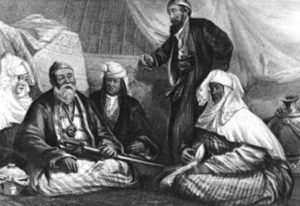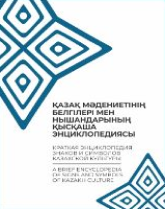




Zhoqtau is a ritual song, a lament for the deceased. The word itself derives from the word “zhoq”, the Old Turkic word for “burial”, “funeral”. Symbolically, this lament marks the transition from the world of humans to the world of the dead. Zhoqtau begins with the transfer of the body of the deceased and is recited after the funeral in the presence of the condolences. While the common traditional scheme of the zhoqtau (compositional unity, rhythm, harmony, etc.) is followed, the mourners compose differently each time, depending on the specific case: lamentations have no specific fixed text.
The text of the Zhoqtau necessarily enumerated the good deeds of the deceased, his positive qualities, and his death was compared to the setting of the sun, the fading of the light, etc. The enumeration of the positive qualities and good deeds of the deceased in the lamentation songs can be considered as his “presentation” in the world of the dead in a special language – the language of the lamentation song. According to the belief of the ancients, the lamentations are well heard by the world of the dead, the world of the ancestors.
Thus, the texts (lamentations), postures, gestures and actions (parting the hair, scratching the face, etc.) characteristic of the funeral and memorial ceremony had only one purpose: to facilitate the transition and ensure the successful crossing of the border between the worlds. At the same time, the zhoqtau is performed only by women and only twice a day at sunrise and sunset. According to S.Sh. Ayazbekova [1], the performance of zhoqtau in the morning and evening during the “birth” and “death” of the day was probably understood in the context of sacred time – the time of connection between “the earthly world and the heavenly (world of the Aruakhs)”.
The exceptional role of women in this process is explained by S.Sh. Ayazbekova with ideas about women’s involvement in the cyclic process of immortality and birth of new life [1, p.20].


